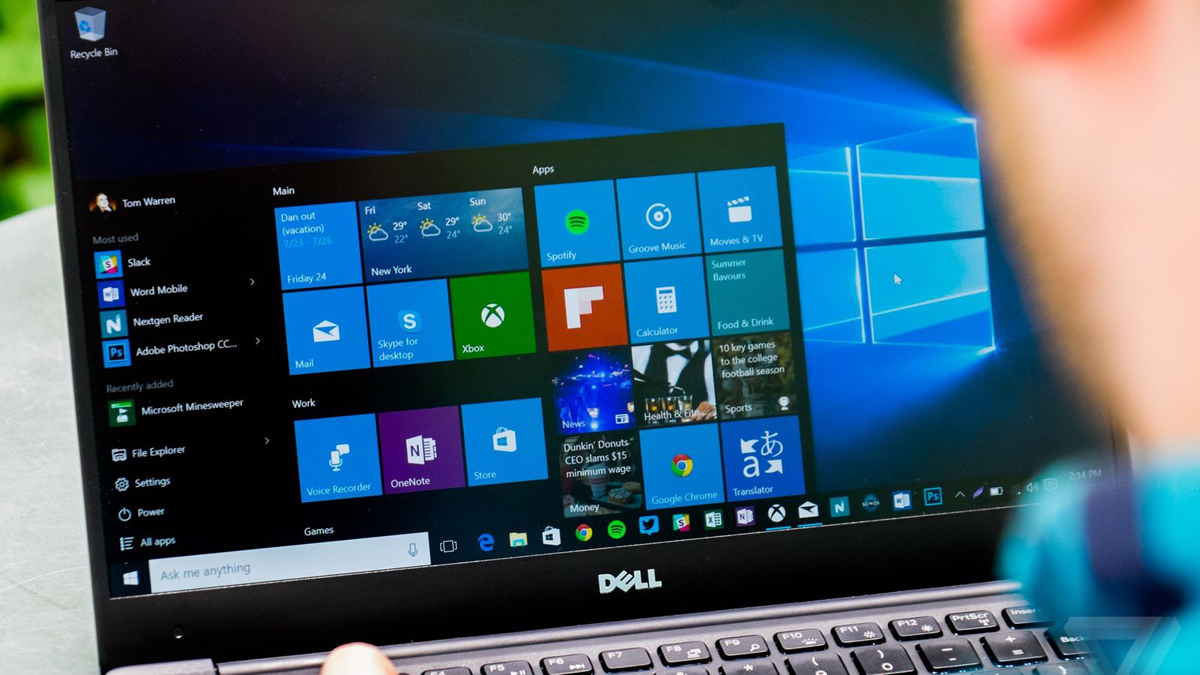Windows 10 spies on emails, images, credit cards, more
 Software ‘collecting data on much of what you do’.
Software ‘collecting data on much of what you do’.
Americans are still waiting for a resolution to the controversy that erupted when it was discovered that the National Security Agency was spying on everyone’s telephones – lawsuits still are pending and Congress is working on making changes to the law.
Now they’re learning that while the NSA was collecting telephone data, the newest version of the ubiquitous Windows software, version 10, is watching everything that’s on their computer.
“From the moment an account is created, Microsoft begins watching. The company saves customers’ basic information – name, contact details, passwords, demographic data and credit card specifics,” explains a new report from the online Newsweek.
“But it also digs a bit deeper,” the report says.
“Other information Microsoft saves includes Bing search queries and conversations with the new digital personal assistant Cortana; contents of private communications such as email; websites and apps visited (including features accessed and length of time used); and contents of private folders,” the warning explains.
“Furthermore, ‘your typed and handwritten words’ are collected.’”
All of the warnings come from the company’s software privacy statement, which includes the statement that Microsoft collects information “to provide you a personalized user dictionary, help you type and write on your device with better character recognition, and provide you with text suggestions as you type or write.”
Alec Meer at the RockPaperShotgun blog warned it’s not something that should be ignored.
“Unless you pay close attention to the fluffy options offered when you first install Microsoft’s new operating system, it’s going to quietly track your behavior and use it to fire targeted ads at you, as well as keeping tabs on your location history, data from messages, calendars, contacts and God knows what else.”
The blog noted that “some of this stuff” can be turned off, but the key point is that people “aren’t so hot” about paying for tools to access the Web and such, so “the money comes from harvesting data and flogging it to advertisers and other organizations who want to know exactly what we’re all up to online.”
He continued, “If you ever wondered why they’ve made the Windows 10 upgrade free to Win 7 & 8 users, here’s one possible answer. Windows 10 has all sorts of user tracking baked right in.”
The Daily Mail reported another complication with the software.
The update to Windows 10, the report said, “automatically made [a man’s] porn collection into a slideshow and used it as a screensaver. And to make matters worse, the malfunction was discovered by his wife, who was greeted by the explicit images first thing in the morning.”
The report said a user posted the story online so others would not repeat the mistake, which reportedly happened when the images were saved into the “My Pictures” folder. It is from that folder the software draws data to build slideshows, the report said.
“I have no idea how to shut that feature off and that computer is staying shut down until I do,” the man wrote, according to the Mail. “Free Windows and a free trip to the doghouse. Thanks Microsoft!”
Newsweek reported an estimated 14 million machines already are running Windows 10.
“The company says it uses the data collected for three purposes: to provide and improve its services; to send customers personalized promotions; and to display targeted advertising, which sometimes requires the information be shared with third parties.”
The report said Microsoft’s practices actually are similar to Google’s, which analyzes the content of users’ emails to provide a “more personalized product.”
Online privacy group European Digital Rights told the Times that the MS policy not only was bad news for privacy.
“Your free speech rights can also be violated on an ad hoc basis,” the group said.
Kirsten Fiedler, of EDR, told the Mail, “Microsoft basically grants itself the right to collect and process everything you do, say and write on your device – which is contrary to the fundamental right to privacy.”
The RockPaperShotgun blog posted some instructions for opting out of the Microsoft data collection plan.
The actions won’t, the blog said, reduce the ads seen.
“But they do mean that not quite so much information about you will be gathered and sold, and also that the ads you do see won’t be ‘relevant’ to what algorithms have decided your interests are.”
http://www.wnd.com/2015/08/windows-10-spies-on-emails-images-credit-cards-more/
